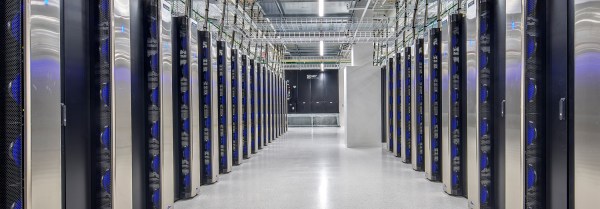
Analysis of the latest trends and developments from DataBank’s own thought-leaders and experts.

The emergence of cloud computing has presented new challenges for organizations seeking to comply with GDPR requirements. This article provides a comprehensive guide to what you need to consider when implementing a GDPR cloud and the steps you can take to ensure compliance.

SSAE 18 is a standard for auditing and reporting on controls at service organizations. Compliance with SSAE 18 requires service organizations to develop and implement controls and procedures to ensure the security, availability, processing integrity, confidentiality, and privacy of their clients’ data.

PCI cloud refers to the use of cloud computing services that meet the Payment Card Industry Data Security Standard (PCI DSS) requirements. This ensures that businesses can securely store, process and transmit credit card information in the cloud while maintaining compliance with industry standards.

Compliant cloud refers to cloud computing services that meet industry-specific regulatory requirements for data protection, privacy, and security. These services are designed to help organizations in regulated industries, such as healthcare and finance, to store and manage sensitive data while remaining compliant with legal and regulatory mandates.

HIPAA cloud storage refers to the secure storage of electronic protected health information (ePHI) on cloud-based servers that comply with the Health Insurance Portability and Accountability Act (HIPAA) regulations.

HIPAA cloud refers to cloud-based technology services that comply with the security and privacy requirements outlined in the Health Insurance Portability and Accountability Act. These services provide healthcare organizations with secure and cost-effective solutions for managing and storing patient health information.

Vulnerability scanning is the automated process of identifying weaknesses or vulnerabilities in a system, network, or application. It involves the use of specialized software to assess and analyze potential security flaws, providing insight into areas that need attention to mitigate the risk of cyberattacks.
A high performance computing data center is a specialized facility designed to house and operate computer systems capable of performing complex and resource-intensive tasks at extremely high speeds. These data centers often feature advanced cooling and power systems to support the demanding requirements of the computing equipment and are used for a wide range of scientific, industrial, and commercial applications.

An HPC data center is a facility designed to house and manage large-scale computing systems. These data centers typically feature specialized hardware, software, and networking infrastructure to enable high-speed data processing and storage. They also have advanced security and redundancy measures to ensure data integrity and availability.


Discover the DataBank Difference today:
Hybrid infrastructure solutions with boundless edge reach and a human touch.